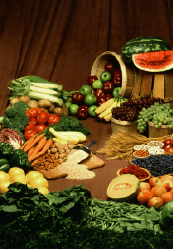Imbibing Healthy Food With Animal Feed Phytase Market
Global warming and climate change are two terms that we have all come across a million times on the internet. With these we have heard different opinions and solutions coming up to reduce them and live a naturally healthy life. One such solution is animal feed phytase. In this blog, we will explore about the conventional world of animal feed phytase market, growth factors and livestock.
What is Animal Feed Phytase?
Animal feed phytase is an enzyme that catalyzes the hydrolysis of phytic acid, releasing inorganic phosphorus and other nutrients that would otherwise be indigestible by animals. By breaking down phytic acid, phytase enhances the availability of phosphorus and improves the digestibility of other important minerals, such as calcium, zinc, and magnesium, in animal feed. Two main classes of phytase are:
- 3-Phytase: This class of phytase is derived from a microbial source and is effective in breaking down phytic acid into three inorganic phosphorus molecules. It is widely used in monogastric animal diets, such as poultry and swine, to improve phosphorus utilization and reduce phosphorus pollution in the environment.
- 6-Phytase: 6-phytase, also known as hexaphytase, is a more advanced and highly efficient form of phytase. It breaks down phytic acid into six inorganic phosphorus molecules, providing even greater phosphorus liberation. 6-phytase is particularly effective in the diets of monogastric animals and ruminants, offering improved nutrient availability and enhanced animal performance.
Feeding Market
The animal feed phytase market has experienced significant growth in recent years and is expected to continue its upward trajectory. The market was valued at USD 549.54 million in 2023 and is expected to grow at a CAGR of 6.4%, generating a revenue of USD 962.07 million by 2032.
To Get Insights on the Animal Feed Phytase Market: Request for a Sample Report
Key factors driving the growth include:
- Increasing awareness about the benefits of phytase in animal diets, such as improved nutrient utilization, enhanced growth, and reduced phosphorus pollution.
- Growing demand for animal protein and the need for efficient feed utilization to meet the rising global demand.
- Stringent environmental regulations regarding phosphorus management in animal waste, driving the adoption of phytase as a sustainable solution.
Livestocks Used
- Poultry: Animal feed phytase plays a crucial role in poultry diets, improving phosphorus utilization, bone health, and overall growth performance. It also aids in reducing phosphorus excretion, mitigating environmental pollution.
- Swine: Swine diets supplemented with phytase show improved phosphorus utilization, enhanced growth rates, and improved bone mineralization. Phytase inclusion also enables reduced phosphorus supplementation and reduces the environmental impact of swine production.
- Cattle: Phytase supplementation in cattle diets enhances phosphorus utilization and improves the availability of other vital minerals, contributing to improved feed efficiency, growth rates, and milk production.
- Aquaculture: Animal feed phytase is increasingly used in aquaculture diets to improve phosphorus utilization and overall feed efficiency in various species, including fish and shrimp. It aids in sustainable aquaculture practices and reduces the environmental impact of fish farming.
Trusting The Process
The animal feed phytase market is witnessing substantial growth, driven by the increasing demand for sustainable and efficient animal production practices. With its ability to enhance phosphorus utilization, improve nutrient availability, and reduce environmental pollution, animal feed phytase plays a vital role in livestock nutrition.
From poultry and swine to cattle and aquaculture, phytase supplementation offers numerous benefits, including improved growth rates, better bone health, and reduced phosphorus waste.
As the livestock industry strives for enhanced productivity and sustainable practices, animal feed phytase market continues to pave the way for optimal animal nutrition and responsible feed management.


